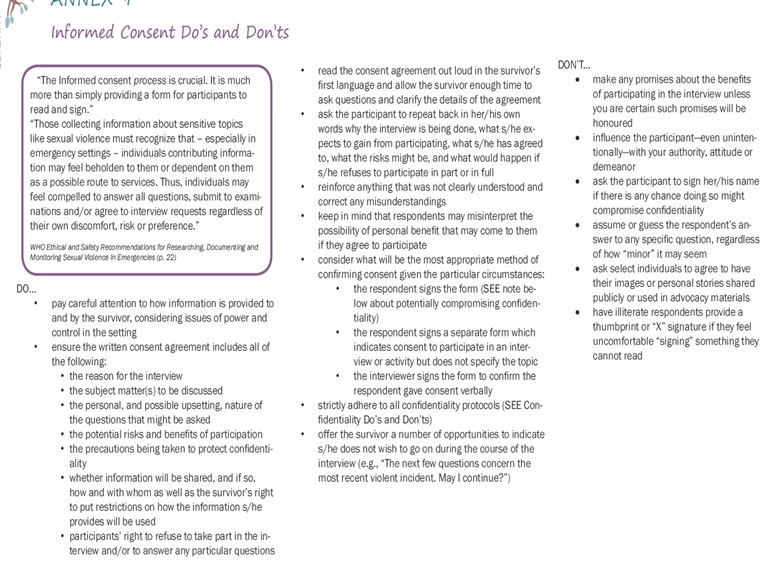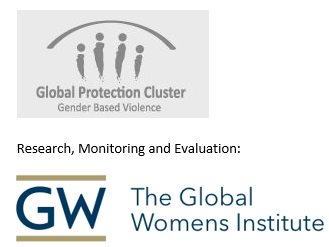- A survivor-centred approach to violence against women seeks to empower the survivor by prioritizing her rights, needs and wishes. It means ensuring that survivors have access to appropriate, accessible and good quality services including:
- Health care
- Psychological and social support
- Security
- Legal services (UNFPA, 2012).
- It is essential that competent service delivery actors have the appropriate attitudes, knowledge and skills to prioritize the survivor’s own experiences and input. By using this approach, professionals can create a supportive environment in which a survivor’s rights are respected and in which she is treated with dignity and respect. A survivor-centered approach helps to promote a survivor’s recovery and to reinforce her capacity to make decisions about possible interventions (UNICEF, 2010).
- The table below compares survivors’ rights with negative impacts typically experienced by VAWG survivors:
|
Survivor’s rights |
|
Negative impact |
|
To be treated with dignity and respect To choose a course of action in dealing with the violence To privacy and confidentiality To non-discrimination To comprehensive information to help make her own decision
|
VS
|
Victim-blaming attitudes Feeling powerless
Shame and stigma Discrimination on the basis of gender, ethnicity, etc Being told what to do Increased risk of revictimization/abuse
|
Source: Ward, J., 2010, adapted from UNICEF. 2010. “Caring for Survivors Training Manual”.
- Obtaining informed consent when working with survivors is an essential aspect of the survivor-centred approach. Some considerations related to informed consent are described below.

Excerpted from UNFPA, 2012. Managing Gender-based Violence in Emergencies: E-learning Companion Guide, Annex 9. Available in English, French, Spanish, and Arabic.
Tools:
Ward, J. June 2004. “Communication Skills in Working with Survivors of Gender-Based Violence: A Five-Day Training Curriculum”, RHRC Consortium.
Also see information on survivor-centred approaches in the Psychosocial Response section.
